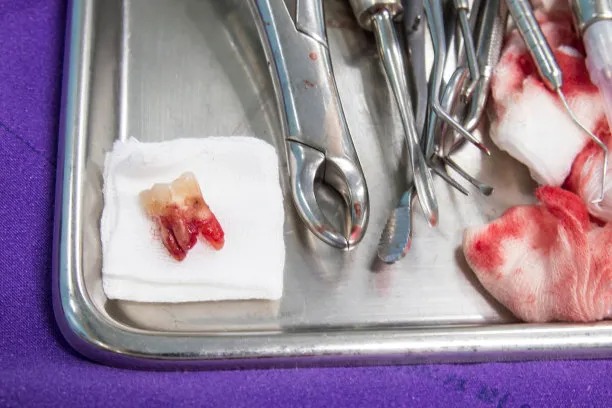Summary: Dental fillings are essential for restoring function and aesthetics in teeth affected by cavities or damage. To ensure a successful filling experience and promote long-lasting oral health, its vital to adopt several essential precautions. This article outlines four critical aspects: selecting a qualified dentist, understanding the procedure, following post-treatment care, and maintaining regular dental check-ups. By adhering to these precautions, patients can minimize discomfort, prevent further dental issues, and enjoy a healthier smile for years to come.
1. Choosing a Qualified Dentist

One of the most significant steps in ensuring a successful dental filling experience is selecting a qualified and experienced dentist. Researching potential dentists is crucial, as a skilled dental professional can significantly influence the outcome of the procedure. Look for reviews, testimonials, and any professional affiliations, which can provide insights into their expertise.
Once you’ve compiled a list, don’t hesitate to schedule consultations with a few dentists. This personal interaction allows you to gauge their communication style, comfort level, and ability to answer questions. A good dentist will help you understand the procedure’s intricacies and set realistic expectations for the results.
Additionally, ensure that the dentist you choose uses up-to-date technology and follows modern dental practices. Innovations in dental filling materials and techniques can lead to a more effective presence and reduced recovery time. Investing in a competent practitioner is a vital precaution that lays the foundation for a successful filling experience.
2. Understanding the Dental Filling Procedure
Before undergoing the dental filling procedure, it is essential to have a thorough understanding of what to expect. This includes knowledge of the types of fillings available (such as composite, amalgam, or porcelain) and how they may differ. Each type has its advantages and disadvantages concerning aesthetics, duration, and cost, so understanding these can help you make an informed decision.
During the discussion with your dentist, inquire about the steps involved in the procedure. Generally, the process involves numbing the area, cleaning out the cavity, and applying the filling material. Knowing the step-by-step procedure reduces anxiety and helps you feel more in control during treatment.
Lastly, addressing any fears or concerns regarding pain management is crucial. Your dentist should ensure you are comfortable throughout the procedure, offering sedation options or numbing agents if necessary. Clarity about the procedure contributes significantly to a successful filling experience and your overall peace of mind.
3. Aftercare for Optimal Healing
Post-treatment care is just as important as the procedure itself when it comes to ensuring a successful dental filling. First, follow your dentists aftercare instructions meticulously, which may include dietary restrictions and oral hygiene techniques. Avoid hard or sticky foods for a few days to allow your filling to set appropriately.
Oral hygiene remains paramount after receiving a filling. Regular brushing and flossing should continue, but it may be helpful to use a softer toothbrush in the first few days to avoid aggravating the treated area. Also, monitoring for any signs of unusual sensitivity or discomfort will be crucial in identifying potential complications early on.
If pain or sensitivity persists beyond a few weeks or worsens, it’s important to promptly consult your dentist. Early intervention can prevent further issues and ensure your filling functions correctly, thereby enhancing your long-term oral health.
4. Maintaining Regular Dental Check-ups
The importance of regular dental check-ups cannot be overstated in sustaining oral health after receiving a dental filling. Routine examinations allow your dentist to monitor the condition of your fillings and overall oral health. Regular visits help catch any emerging issues early, such as decay around fillings or potential fractures.
Additionally, professional cleanings during these check-ups play a significant role in preventing complications. Dentists can remove tartar and plaque buildup that regular brushing might miss, ensuring a healthier mouth overall. These cleanings can prolong the lifespan of your fillings by providing your dentist with an opportunity to assess their integrity.
Moreover, maintaining good oral hygiene habits at home, supplemented by professional support, creates an effective combination for long-lasting oral health. Prioritizing these dental visits is a proactive approach to ensure the durability of your fillings and prevent further oral problems.
Summary:
In conclusion, a successful dental filling experience hinges on careful preparation, knowledgeable choices, and diligent aftercare. By selecting a reputable dentist, understanding the procedure, adhering to post-treatment guidelines, and maintaining regular check-ups, you can significantly enhance your chances of long-term oral health. These essential precautions will ensure that your dental fillings serve you well and contribute to your overall well-being.
This article is compiled by Vickong Dental and the content is for reference only.
Vickong Dental
Vickong Dental is a large medical group established in Hong Kong in 2008 by professors from well-known medical universities in Guangdong and Hong Kong, as well as medical doctors from key national '985' universities (including Master's supervisors and senior professors). The chain of branches brings together expert dentists with PhDs and Master's degrees from Hong Kong and Mainland China, committed to providing high-quality dental treatment.
"Vickong Dental Practices the University Motto of 'Healing and Serving Society,' with a Stable Operation for Sixteen Years. It Has Been honored with Hong Kong Enterprise Leaders's Choice,' and is a Global Trusted Implant Center for the Nobel Implant System. Recommended by Hong Kong Metro Broadcast and Guangdong Television, it Serves Customers from Over Thirty Countries and Regions, Gaining the Trust and Favor of Citizens from the Guangdong-Hong Kong-Macau Greater Bay Area and Surrounding Cities.

Thousands of customers' unanimous praise
The most recognized and highly recommended dental service by customers in the Guangdong-Hong Kong-Macau Greater Bay Area
We Ensure You Receive Detailed Care and Attention Here
Hong Kong standards, Shenzhen prices, Your Trusted English-speaking dentists

Vickong Dental Medical-Grade Instrument Disinfection Process
Vickong Dental Medical-Grade Instrument Disinfection Process

Vickong Dental Chain: A Warm and Comfortable Environment for Treatment






Appointment Hours

Q&A
Why choose Vickong Dental?
Vickong Dental practices the university motto 「Medicine to Benefit Society」, with each branch bringing together highly qualified dentists with doctoral and master’s degrees from Hong Kong and the Mainland, and has maintained seventeen years of steady operation。Recipient of 「2024 Hong Kong Enterprise Leaders Brand」, 「2025 Hong Kong Enterprise Leaders Brand」, a Nobel Biocare Global Trusted Implant Center, and a brand recommended by Metro Radio Hong Kong and Guangdong TV。
To date, we have served customers from more than thirty countries and regions,earning exceptionally high word-of-mouth recognition and trusted recommendations from residents across the Guangdong-Hong Kong-Macao Greater Bay Area and surrounding cities
We have eight major branches in Zhuhai、Shenzhen,and a consultation and service assurance center in Hong Kong,so you can book a free consultation at any time for any questions,which is very reassuring.
If I do not accept the quotation after the CT scan, will I be charged??
No! As long as the actual treatment has not started, you will not be charged any fees.
Will there be any additional charges during the treatment process?
No, there won’t be any additional charges. Before treatment begins, we will clearly explain the treatment plan and its corresponding fees. Only after the patient agrees and signs the consent form will we proceed with the dental service.
Can I pay in Hong Kong dollars?
Yes. Vickong Dental accepts payment in Hong Kong dollars. The amount will be converted based on the exchange rate of the day, and the applicable rate will be clearly communicated to you in advance.
Can I reschedule my appointment at any time?
Yes. Please contact us via **WeChat** or **WhatsApp** as early as possible, providing your original appointment time and details, along with your preferred new date and time slot for rescheduling.













